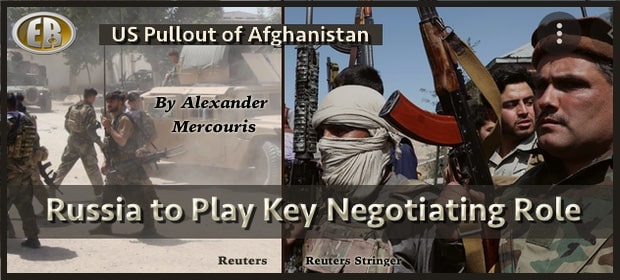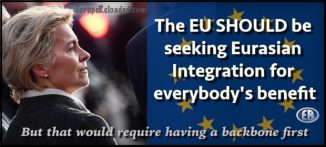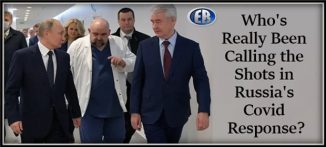
ER Editor: Here is some of Alexander Mercouris‘ take on what is currently taking place as the US purportedly leaves Afghanistan by August 31, 2021 and the Taliban rapidly advance through the territory.
***
Here is the TASS article Mercouris links to: SCO Foreign Ministers to adopt statement on Afghanistan on July 14 – Foreign Ministry
***
- The Taliban is advancing across Afghan territory. Frantic discussions are taking place about what to do about it, and Moscow is at the centre of that. Moscow has become the cockpit of international diplomacy, as Berlin and Washington used to be.
- There’s been a series of conversations taking place between the leaders of Tajikistan and Uzbekistan and Putin. Both countries are more or less integrated into structures and organisations involving Russia. Both countries border Afghanistan; Russia has a major base in Tajikistan. Tajikistan and Uzbekistan have referred to each other as ‘allies’ and are looking to make a closer alliance. They want a stable border situation between Tajikistan and Afghanistan. Afghan soldiers have been fleeing into Tajikistan from the Taliban’s advance. They’re being held in protective custody in Tajikistan. Russia is being looked to for help.
- Other parties are becoming increasingly involved to get Moscow’s help, e.g. the Indian foreign ministry has just gone to Moscow. India has a longstanding connection with Afghanistan; it has been opposed to the Taliban, which is seen as an ally of Pakistan. India doesn’t want to see the Taliban gain unconstrained power in Afghanistan again. Historically, the Russians and Indians, both of whom have been wary of Pakistan and its ally China, have tended to work together in Afghanistan. India is probably hoping for a similar rapport with Russia over this.
- The Russians are also busy organizing a meeting with the Shanghai Co-operation Organisation in Tajikistan at the foreign minister level, and will issue a statement on the Afghanistan situation. China will also be involved. India and Pakistan are observer member states.
- The days of the US-backed government in Afghanistan are now numbered. So where is this going to go once the US has left?
- The Russians have categorically ruled out the possibility of their own troops deployed in Afghanistan itself. They have a long history of sending their troops there, especially in the 1980s when they fought a war. This won’t be repeated.
- So what will Russia do? They’ll talk to the Taliban, which is neither unusual nor extraordinary. But likely the Russians will be telling them that, if they re-establish themselves as the government, the Russians will not stand in their way, but would prefer a power-sharing arrangement with other groups. However, they will insist that the Taliban doesn’t host other extremist organizations like ISIS, etc. The Taliban is likely to agree. They could be as alarmed by the reappearance of ISIS in Afghanistan as much as the Russians are. They may look to Russia to help them with this. Al Qaeda brought down a whole heap of trouble on Afghanistan historically.
- The Taliban is more of a nationalist organization with a fundamentalist colouring. It’s not a group intended to create the Caliphate. They won’t happily host Al Qaeda or ISIS. Now the Taliban has won the war and become the government, they will likely want peace and begin to reconstruct the country. They’ll need help from external states, such as Russia and China, even Iran and Pakistan with this. So over the next couple of weeks, negotiations will go on between the Taliban and international players, especially the Russians. They will seek wider integration in Eurasian organizations and the global community more generally.
- If any side is able to sort out a diplomatic result in this situation, it will be the Russians. Despite the war between the Taliban and Russians in the 1980s, there is grudging respect between the two sides. Some sort of agreement can be reached. The days when the US backed the Mujahideen in the 1980s will be over. And the legacy of the Soviet system in Russia will be over, which historically supported communism around the world. It had led to the Russian intervention in Afghanistan in the 1980s. Today’s Russia is no longer bound by ideology anymore, so they are able to deal with everyone, even historical enemies.
- Undoubtedly the Russians and Taliban are talking to each other; it remains to be seen what will come out of these talks.
******
Moscow At Centre of Frenetic Afghan Diplomacy as Taliban Advances
ALEXANDER MERCOURIS
Moscow At The Centre of Frenetic Afghan Diplomacy as Taliban Advances
News Topic 214
************
Source
••••
Click on the image below to visit site:
••••

••••
The Liberty Beacon Project is now expanding at a near exponential rate, and for this we are grateful and excited! But we must also be practical. For 7 years we have not asked for any donations, and have built this project with our own funds as we grew. We are now experiencing ever increasing growing pains due to the large number of websites and projects we represent. So we have just installed donation buttons on our websites and ask that you consider this when you visit them. Nothing is too small. We thank you for all your support and your considerations … (TLB)
••••
Comment Policy: As a privately owned web site, we reserve the right to remove comments that contain spam, advertising, vulgarity, threats of violence, racism, or personal/abusive attacks on other users. This also applies to trolling, the use of more than one alias, or just intentional mischief. Enforcement of this policy is at the discretion of this websites administrators. Repeat offenders may be blocked or permanently banned without prior warning.
••••
Disclaimer: TLB websites contain copyrighted material the use of which has not always been specifically authorized by the copyright owner. We are making such material available to our readers under the provisions of “fair use” in an effort to advance a better understanding of political, health, economic and social issues. The material on this site is distributed without profit to those who have expressed a prior interest in receiving it for research and educational purposes. If you wish to use copyrighted material for purposes other than “fair use” you must request permission from the copyright owner.
••••
Disclaimer: The information and opinions shared are for informational purposes only including, but not limited to, text, graphics, images and other material are not intended as medical advice or instruction. Nothing mentioned is intended to be a substitute for professional medical advice, diagnosis or treatment.




